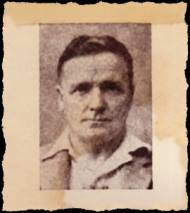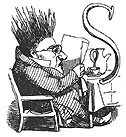 | ||||


BIOGRAPHICAL OVERVIEW:
Whoever advances valuable
new ideas on a controversial
topic should not die young.
John Bowlby
The almost unknown Ian Suttie (1889 - 1935) challenged some of the central doctrines of Freudian theory. At the same time he provided an alternative metapsychology to the culturally debilitating reductionism, the nothing but approach that many people thought was the central message of psychoanalysis and its great rival in twentieth century psychology, "scientific" behaviourism.
Suttie was born in Glasgow in 1889. His farther was a general practitioner and all four of the children became doctors. He graduated from Glasgow University in 1914 and turned to psychiatry before he joined the Army Medical Corps. He served in France and the Middle East, then returned to the Glasgow Royal Asylum where he met and married Dr Jane Robertson, a fellow psychiatrist at the Asylum.
In 1928 he moved to the Tavistock Clinic in London, first as a clinical assistant and later as a full staff member. He and Jane established a private practice in Bloomsbury where they rented two adjacent flats. Jane also joined the Tavistock.
He developed his ideas in a number of papers, a first batch between 1922 and 1926, then another set in the early 1930s. In addition to his clinical commitments he organised a series of private discussion meetings where Tavistock staff (mostly outriders to the Freudian wagon train) engaged in friendly but rigorous discussions with colleagues from other schools of thought. Unfortunately the development of his ideas cannot be fully reconstructed. His unpublished notes, texts of many lectures, and his plans for a second book were lost because a WW2 bomb destroyed the archives of the Tavistock Clinic and his widow left no papers.
He was an active and energetic man; it is claimed that he wrote standing up in between walking up and down the room. He was dogged by health problems. Early in life he experienced a serious kidney disorder and for ten years before his death he suffered frequently from a duodenal ulcer. He did not willingly accept the diets that were recommended to ameliorate the condition; one of his joking ambitions was to climb a mountain and sit down to a banquet, complete with wine, at the summit.
The Origins of Love and Hate was written quickly during a year or so when Jane took extra patients so that he could reduce his clinical workload. His final illness came upon him in 1935 while the book was in the hands of the publisher and he died in the week that the first copies of book emerged from the press.

Rafe Champion writes on the life and work of Ian D Suttie. This essay sketches the state of play in psychiatry at the time that Suttie made his contribution. It also summarises the main themes of Suttie’s one book, The Origins of Love and Hate.. Extracts from the book can also be found at the following links:
SUTTIE'S LEGACY
INFREQUENTLY ASKED QUESTIONS:
Thumbnail sketch of Sutties's
contribution to psychiatry. The
reason for reviving the memory of Ian Suttie is to pay tribute to his pioneering spirit and profound humanity.
Revivalist4
